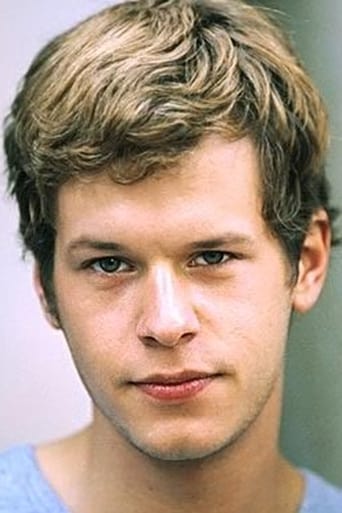Scanialara
You won't be disappointed!
Diagonaldi
Very well executed
Geraldine
The story, direction, characters, and writing/dialogue is akin to taking a tranquilizer shot to the neck, but everything else was so well done.
fred-kolb
In a very moving and unsentimental Drama, Sönke Wortmann brings us the amazing story of the German National Soccer Team, who unexpectedly defeated the Hungarians in the final of the World Cup 1954 in Switzerland. After being a prisoner of war for 9 years, Richard Lubanski comes home to his family, only to find himself in a world, strange and unknown to him. His oldest son Bruno is a communist, who plays Jazz music for a living, his daughter Ingrid helps her mother at the family's bar, and his youngest son Matthias is a soccer fan and a good friend of Helmut Rahn, a player of the German national team. Richard in his embitterment and desperation drives his family apart, and for a long time fails to realize that he's the one responsible for it. In the second plot line, the journalist Paul Ackermann gets the honorable assignment of reporting for the "Süddeutsche Zeitung" in Switzerland during the World Cup, news not to well received by his wife Annette, who was already planning their honeymoon. She insists on coming with him and during her stay in Switzerland she learns quite a bit about soccer and in the end knows more about it than her husband. The German National team, under Coach Sepp Herberger, is confronted with very difficult opponents and after an embarrassing defeat against the Hungarians, many Germans already see the team's chances gone of entering the next round. Rahn, who got drunk after the loss against Hungary, but learned from his mistakes, and Fritz Walter, the captain of the team, though, both very ambitious players, try to motivate the whole team and eventually they play in the final, once again against the Hungarians. Whether you are a soccer fan or not is of little importance when watching this movie, as it is more about family, friendship and teamwork than about the sport itself. At times moving, at others funny, "Das Wunder von Bern" is a wonderful portrait of Germany after World War II, a desperate nation in desire of a miracle. The young Louis Klamroth gives an extremely good performance, as do Peter Franke, Sascha Göpel and especially Peter Lohmeyer as Richard Lubanski. All in all, an excellent piece of German history. (9.5/10)
david_tomlinson100
This is a gem of a film, in no way undermined by sub titles. It had a similar effect on me to that which Billy Elliott allegedly had on our Deputy Prime Minister, J. Prescott Esq! The plot is centred around the David and Goliath struggle between mighty Hungary and little West Germany in the World Cup final hosted by Berne in the summer of 1954. Even though this was over 50 years ago, it is still generally known that the Hungarian team spearheaded by the incomparable Puskas was invincible in those days. Shortly before I was born in April that year, my father took my mother to see them play England and they thrashed us 6 - 3! Drawn in the same group in the early stages of the competition, Hungary thrashed W. Germany 8 - 3, but both teams went on to meet in the final and W. Gernamy came from behind to win 3 - 2. However that is background only.The film is about much more than a simple triumph in a football competition. The sense of period is superb. The attention to detail to ensure that the audience really does travel 50 years back in time is to my mind almost without parallel. Aided by computer graphics which perhaps fall a little short of the quality achieved in Titanic, the film vividly portrays the atmosphere in a depressed working class community on the West side of a divided Germany, still very much demoralised by the aftermath of the second world war. Their hero is a young man nicknamed the boss who plays football for the national team. The boss is friendly with and idolised by the real hero of the film, Matthias, a little boy of about 10 who has never known his own father, Richard, a prisoner of the Russians since 1943 and like many German POWs, not repatriated until the Soviets relax their stance only after Stalin's death 10 years later. We then get a valuable insight into the difficulty that this eminently decent, but badly desensitised man has readjusting to life with his family who have moved forward in his absence. There is a problem with each of his children, but inevitably the film focuses on his relationship with little Matthias, a football mad child of whose existence Richard was actually unaware. Helped by a strong wife, a sensible priest, but above all by the child himself, the father learns to confront his demons. It turns out to be much more than the success of the national team that enables the family to recover its mutual love and self respect. Thereafter father and son make up for lost time! The film is not short on light relief. There are brilliant performances by Katherina Wackernagel and Lucas Gregorowicz playing a young newly wed couple (husband a sports reporter) whose honeymoon plans are frustrated by the World Cup fever. Bear in mind that this is only 12 years before England's own 1966 victory – remember how Sir Alf Ramsey treated the journalists and interviewers of the day? Perhaps he was taking a leaf out of the book of his 1954 German counterpart! Likewise the match commentary has gone down in German folklore. In the Marriage of Maria Braun, we heard part of the original recording while something quite unconnected with football was going on! It is powerful stuff, but in this film, the commentary is rightly played to some extent for laughs. However the strongest performances come from the family members themselves and inevitably from Peter Lohmeyer and Louis Klamroth who apparently really are father and son! If Mary Poppins and Billy Elliott raised that lump in your throat, be ready to go with the flow, but have a few Kleenex to hand!
danstephan3000
I did not know until reading the comments at the IMDb site that winning the FIFA World Cup in 1954 meant so much to a Germany that was building a new, humanitarian society.I want to add two remarks to what has been said so well by the others.First of all, I think that "Miracle at Berlin" should be released worldwide with English sub-titles because it has such a good story to tell. It only had Thai sub-titles (not English) here in Chiang Mai, Thailand, but I was lucky to understand enough of the German dialog. The theatre manager later told me the Thai sub-titles helped many natives here to enjoy and appreciate this, so he ran it an extra week.Secondly, it is pleasant to see the Germans in the film express their patriotic pride in such a positive way. For example, it was fun to watch the young woman who agreed to delay her honeymoon so that her sportswriter husband could cover the World Cup in Switzerland. She had cared little about the tournament but in the final match came out in front of the German fans to lead cheers for their struggling team.Since then it was also a pleasure to see and read how Germany hosted such a successful World Cup tournament in July, 2006, with their theme for visitors from around the world, "A Time to Make Friends." I'm reminded how Chief Justice of the US Supreme Court Earl Warren said he would first read the sports pages for news of human accomplishments before having to turn to the front pages to learn about the failures. Now that so much of the Middle East is once again in flames, we need stories like "Miracle at Berlin" to remind us that sometimes there are still happy endings.
Harry T. Yung
SpoilersLet's set the score straight. 'Football' here does not mean the affair in which your kicking score comprises 3 points for a field goal and 1 for a successful touchdown conversion.The general backdrop is post WWII Germany. The story runs parallel in two venues (a small town in Germany and the facilities for the 1954 World Cup held in Switzerland) and three lines: a war prisoner returning to readapt to a new life; a couple's belated, improvised honeymoon when the husband is called upon to report on the World Cup; and the German team's struggle and triumph.The characters are varied, as is their difference in depth. Somewhat one-dimensional, albeit rather pleasing, is the young couple in the sub-plot, she from a rich family, playful and fun-loving, he a rising reporter (although it's difficult to tell why, based on his performance), with little hint in either to shed much light on their real character. Having more depth is the family with the father returning after 12 years as a prison-of-war to his wife and three children. The main focus here is on the father and the youngest son he didn't even know about, being was born nine months after he left (didn't get the letters sent to him). The father's difficulties in adjusting back to a normal life is reasonably well depicted. The twelve-year-old's innocence, slightly introvert personality and healthy curiosity have also come across nicely. In the last of the three story lines, the Germany football team, the two key characters are the coach and a player from the boy's town, who is also his mentor and father figure. Both are stereotyped, but acceptable. There are a few aspects of this film that I would like to particularly mention. Some of the scenes of Switzerland are unbelievably beautiful, even surpassing those you see at the opening of The Sound of Music (when Julie Andrews sings the title number). The dialogue, insofar as I can surmise from the sub-title, is witty. There is even an exchange, between the coach and a cleaning lady at the hotel, that comprises entirely of proverbs, reminiscing of two songs in two different Gilbert and Sullivan operettas (HMS Pinafore and Iolanthe). The usual 'echoing' technique is well places e.g. in the final scene in the train, the boy bringing two cold beers to his mentor, or echoing to his father what the latter said before 'German boys don't cry'.I think it's appropriate to leave the final words to football. The upbeat game in the finale is well shot and wisely refrains from being over-melodramatic, although, as far as I understand, the actual score of 3-1 has been modified to 3-2 for dramatic effects. To the audience in town, the games are obviously much more appealing than those in Remember the Titans (2000). Interesting to note also that thing haven't changed in 50 years. Although the TV screen has come a long way, the crowd at the pub shown in the movie is essentially no different from the crowd I rubbed shoulder with in the local pubs two years ago for the 2002 World Cup.





